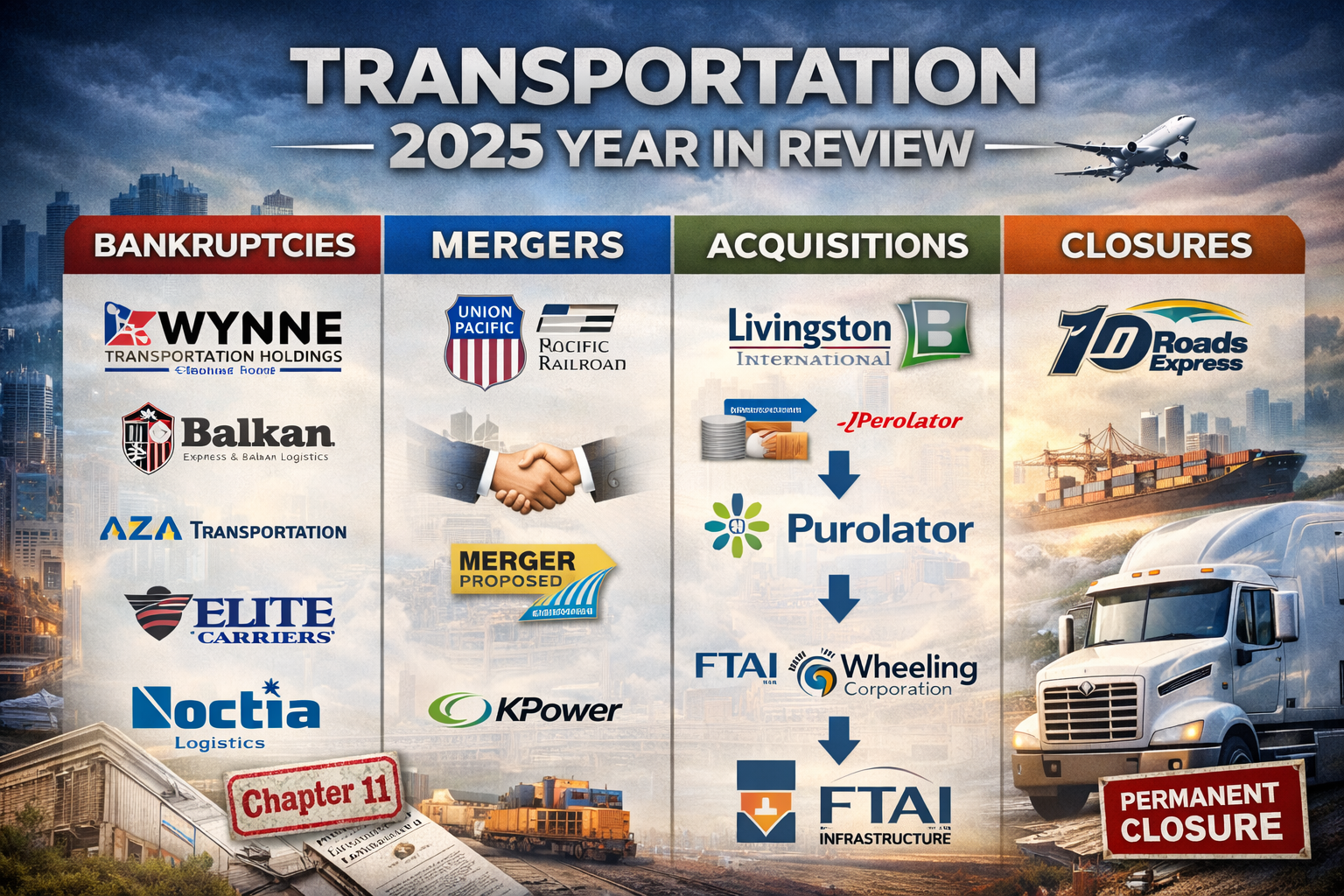How Freight Factoring Impacts Your Tax Strategy
Share this Article:
Receivables-based financing offers transportation companies a practical way to improve cash flow, but it comes with tax implications that shouldn’t be overlooked. Decisions about these agreements directly affect a company’s tax position, regardless of size or stage of operation. Understanding how they function helps fleet managers and transportation companies align financial strategies for long-term efficiency and
compliance.

What is Freight Factoring?
Through this method, transportation companies sell accounts receivable at a discount in exchange for immediate payment. It accelerates cash flow, reducing delays caused by slow-paying customers. While commonly used to cover fuel, payroll, and maintenance expenses, the terms of each agreement can influence tax treatment.
Recourse Factoring
A recourse agreement means the transportation company remains liable if the customer fails to pay the invoice. If a client defaults, the factor has the right to collect that amount from the company that sold the receivable. This structure offers lower fees but carries more financial risk.
From a tax perspective, liabilities remain on the books. The receivable is technically not considered a final sale, and the company must account for that risk in its reporting. How it appears on the balance sheet can affect deductions, timing of income recognition, and state tax exposure, depending on the jurisdictions involved.
Non-Recourse Factoring
Non-recourse shifts the risk of non-payment to the financing company. Once the invoice is paid, the transportation company is no longer responsible if the customer fails to pay. This setup generally comes with higher fees, but it provides more predictable cash flow and reduces financial exposure.
For tax reporting, the transaction is treated more like a completed sale of receivables. That may change how revenue is recognized and can alter the company’s nexus profile in states where the financing company operates. Understanding the contract’s terms is key to classifying revenue and liabilities correctly across multiple jurisdictions.
Tax Implications of Freight Factoring
This financing changes how revenue and liabilities are recorded, and tax treatment depends heavily on agreement details. Companies must account for income recognition, balance sheet adjustments, and exposure tied to multi-state operations. Key tax impacts include:
- Revenue Recognition: Invoices may be recognized as income when sold, not when paid by the customer.
- Deductibility: Fees paid to the financing partner are typically deductible but must be tracked accurately.
- Balance Sheet Impact: Recourse may keep liabilities on the books; non-recourse may not.
- State Tax Exposure: Multi-state financing partners can affect nexus and filing obligations.
Tax Strategy Considerations for Factoring
Incorporating receivables funding into tax strategy requires close attention to timing, classification, and contract terms. Income recognition should align with the type of agreement, particularly when distinguishing between recourse and non-recourse models. Companies must also evaluate the deductibility of service fees and their effect on taxable margins.
These programs may influence year-end positions, which impact estimated
tax payments and reserve planning. If handled incorrectly, they can lead to audit exposure or underreported liabilities.
Reviewing contracts annually is especially important if operations expand into new states or if financing partners change. Routine planning helps companies stay ahead of tax risks.
Multi-State Operations & Nexus Considerations
Receivables financing can create or expand nexus in states where the company previously had no filing obligation. If the funding partner operates in multiple states or maintains a physical presence, reporting requirements may shift based on how revenue is sourced.
Some states view factoring relationships as creating economic presence, especially if funds are routed through local financial institutions. Even without a physical footprint, the use of certain financial services may establish filing requirements under state-specific nexus rules.
Companies operating across jurisdictions must track how receivables are assigned, collected, and reported. Reviewing nexus and sales apportionment rules is essential when using these tools to support growth. Overlooking them can lead to late filings or assessments.
Common Mistakes and Compliance Risks
Improper use of receivables-based financing can result in reporting errors, missed deductions, and multi-state exposure. Many companies overlook tax impacts during setup or fail to update documentation as operations evolve. Common mistakes include:
- Misclassifying Factoring Type: Treating a recourse agreement as non-recourse can misstate revenue and liabilities.
- Missing Nexus Triggers: Factoring relationships can unintentionally create filing obligations in new states.
- Overlooking Fee Documentation: Failing to record and categorize factoring fees may reduce deductible expenses.
- Ignoring Contract Updates: Tax positions may shift if factoring terms change and go unreviewed.
- Lack of Coordination: Finance and operations teams often fail to align on the tax treatment of factored receivables.
Strategic Tax Planning with a Freight Factoring Component
Using this funding method in tax planning involves evaluating entity structure, apportionment methods, and revenue sourcing rules. These agreements may shift income recognition across jurisdictions, affecting both state filing and estimated payments. Companies should also review how gross receipts are impacted—particularly in states where those values drive tax liability.
When paired with multistate activity, the arrangement can influence how and where business activity is attributed. Regular contract and compliance reviews allow transportation companies to adapt to changing terms, state laws, or growth-related restructuring.

How Transportation Tax Consulting Can Help
Transportation Tax Consulting works directly with transportation companies to evaluate how these financing arrangements fit into their overall tax position. Our team identifies how factoring arrangements may impact nexus, income recognition, and deductions. We review agreements, assess reporting requirements across jurisdictions, and help companies prepare for audits or regulatory changes.
For businesses operating without an in-house tax department, our support fills the gap through tailored planning and compliance services. We provide structure around how factoring is treated in both financial reporting and
multistate tax filings, minimizing risks while improving accuracy.
We bring decades of transportation tax experience to every engagement, offering guidance that adapts to the structure and scope of each operation. Our work also supports long-term strategies such as
merger and acquisition planning, where tax treatment of receivables plays a critical role. As your operations evolve, we help adjust your tax strategy to keep your liabilities managed and your business goals on track.
Partner with Transportation Tax Consulting today to protect your business from unnecessary tax burdens and unlock greater financial stability.
Schedule a consultation now to see how our expertise can strengthen your operations.
Share with Us:




